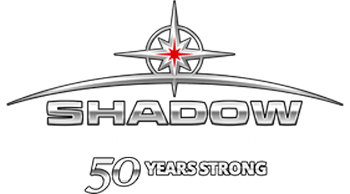When it comes to shipping bulk products, two common options you’ll hear about are FTL (Full Truckload) and LTL (Less than Truckload) shipping. Both methods are widely used in freight transport, but they are most effective for different types of shipments. Choosing the right one can save time, reduce costs, and make sure your products reach their destination safely.
Let’s look at the key differences between FTL vs LTL shipping and help you figure out which option works best for your business.
FTL vs LTL Key Differences
| Feature | FTL (Full Truckload) | LTL (Less than Truckload) |
|---|---|---|
| Truck Usage | Entire truck is dedicated to one shipment | Multiple shipments from different shippers share one truck |
| Cost | Higher cost, but more cost-effective for large shipments | Lower cost for smaller shipments; pay only for space used |
| Delivery Time | Faster, direct from origin to destination | Longer, due to multiple stops for pickups and deliveries |
| Risk of Damage | Lower, cargo stays on the same truck | Higher, more handling increases the risk of damage |
| Flexibility | Less flexible for small shipments | More flexible, ideal for small or irregular shipments |
| Ideal for | Large shipments that fill a truck | Smaller shipments that don’t require a full truck |
What to Consider With FTL Shipping
FTL shipping offers several advantages for bulk shipments. Delivery is faster since the truck goes directly from the origin to the destination without multiple stops. There’s also a lower risk of damage because the cargo stays on the same truck throughout the journey, reducing handling. FTL is especially suitable for large orders that can fill an entire truck, making it an efficient option for businesses shipping in bulk.
On the downside, FTL shipping can be more expensive for smaller shipments that don’t fill the truck, as you may end up paying for unused space. It also offers less flexibility since truck size and scheduling are fixed, which can be limiting for smaller or irregular shipments.
What to Consider With LTL Shipping
LTL shipping is a smart option for smaller shipments. It’s cost-effective because you only pay for the space your shipment occupies, making it ideal for businesses that don’t need a full truck. LTL also offers flexibility, allowing you to ship small or irregular loads without the expense of reserving an entire truck. Additionally, consolidating shipments is more environmentally friendly, as it reduces the number of trucks on the road.
However, LTL shipping can take longer since trucks make multiple stops for pickups and deliveries. There’s also a higher risk of damage because shipments are handled more frequently and transferred between trucks during transit.
Which Option Should You Choose?
The choice between FTL vs LTL shipping depends on the size, urgency, and nature of your shipment:
- Choose FTL for large bulk shipments that need fast, direct shipping with minimal handling.
- Choose LTL for smaller shipments that don’t fill a truck and where cost efficiency and flexibility matter most.
Working with a trusted logistics partner can help you make informed decisions. At Shadow Group, we specialize in both FTL and LTL bulk product shipping, ensuring your cargo arrives safely, on time, and within budget.
Get in touch with us if you want to learn more about these methods!
